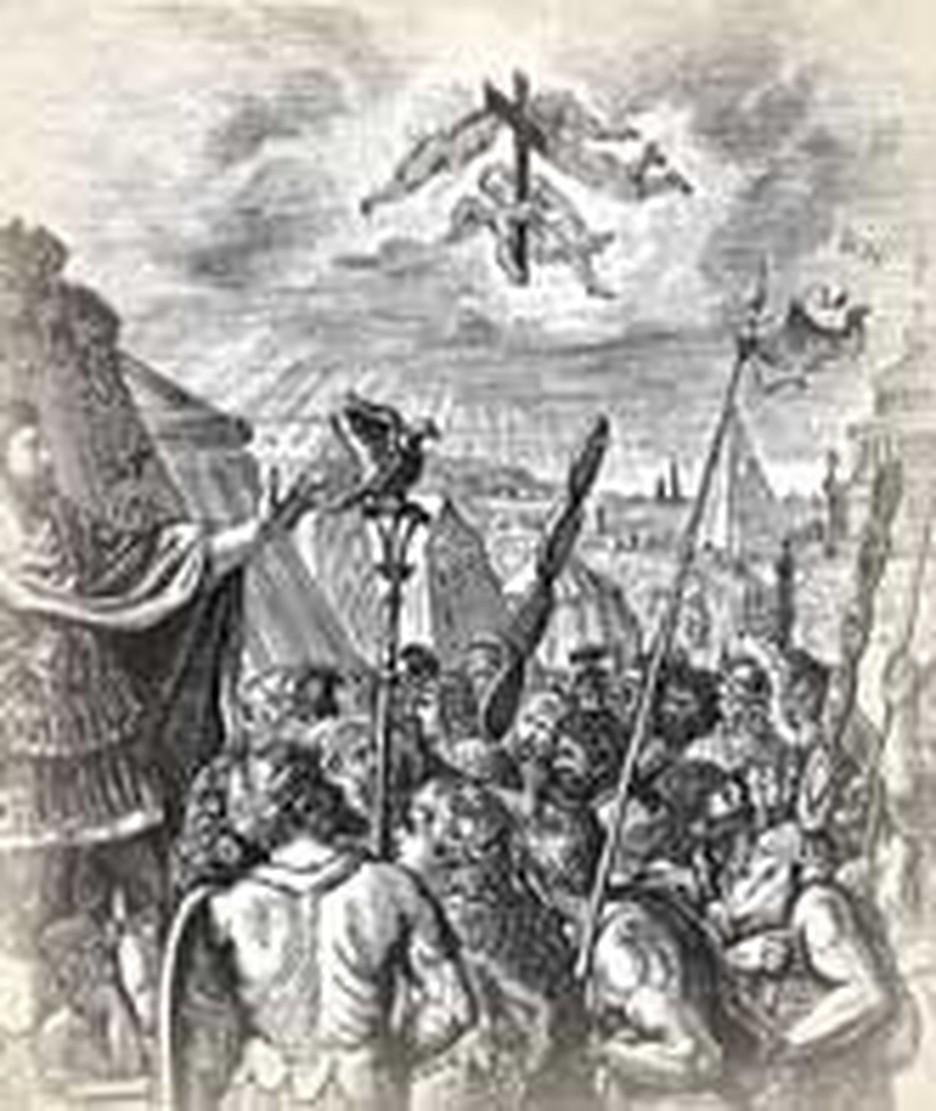
The world experiences red letter days that no historian dare ignore. One of them occurred on this day, October 28, 312 when a 32-year-old claimant to the Roman Empire defeated his chief rival to the throne.
Constantine's father had been one of the rulers of the sprawling empire. After his death, his troops named Constantine "Augustus." However, others wanted a piece of the action. One of them, Maxentius, was determined to hold Italy and Africa for himself. Constantine would have to defeat him in order to make good his claim to the throne. Constantine's trusted friend and church historian Eusebius tells what happened as the "Augustus" prepared for one of the most decisive battles of history:
"Constantine was praying to his father's god, beseeching him to tell him who he was and imploring him to stretch out his right hand to help him in his present difficulties. While he was fervently praying, an incredible sign appeared to him from heaven. (It would be hard to believe his account if it had been told by anyone else. But the victorious emperor long afterwards declared it to the writer of this history -- when I was honored to meet and talk with him and he even confirmed his statement by an oath. Thus, who could doubt him, especially since time has established its truth?) He said that about noon, when the day was already beginning to decline, he saw with his own eyes the trophy of a cross of light in the heavens, above the sun, and an inscription that said 'Conquer by This' attached to it. Seeing this, he and his army, which followed him on an expedition and witnessed the miracle, were struck with amazement.
"He said that he doubted within himself what importance the vision might hold. He continued to ponder its meaning through until he fell asleep. While sleeping, the Christ of God appeared to him with the same sign he had seen earlier in the heavens. God commanded him to make a likeness of that sign which he had seen in the heavens and to use it as a safeguard in all encounters with his enemies."
The upshot was that Constantine defeated Maxentius at the Milvian Bridge, Rome. He honored Christian bishops and meddled in their affairs the rest of his life. Constantine was baptized on his death bed, the first Roman emperor to embrace Christianity.
Bibliography:
- Aland, Kurt. Saints and Sinners; men and ideas in the early church. Philadelphia: Fortress Press, 1970.
- "Constantine the Great and His Sons." New Schaff-Herzog Encyclopedia of Religious Knowledge. Grand Rapids: Baker Book House, 1954.
- Durant, Will. Caesar and Christ. New York: Simon and Schuster, 1944.
- Eusebius. Ecclesiastical History. Various editions.
- Herbermann, Charles G. and Georg Grupp. "Constantine the Great." The Catholic Encyclopedia. New York: Robert Appleton, 1914.
- Various church histories such as LaTourette, Rodriguez, Chadwick and more.
Last updated April, 2007.


